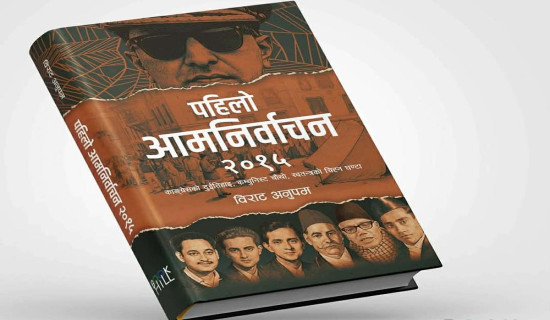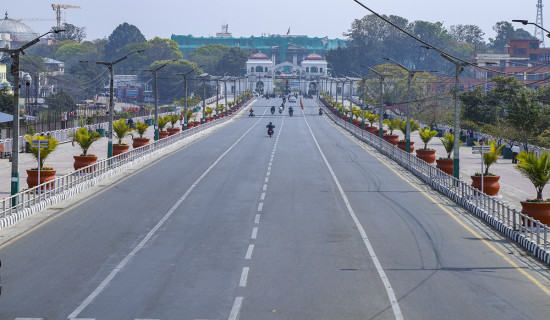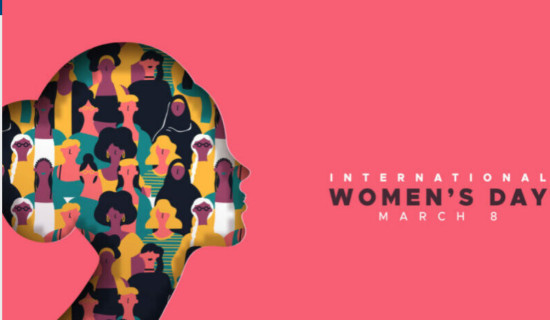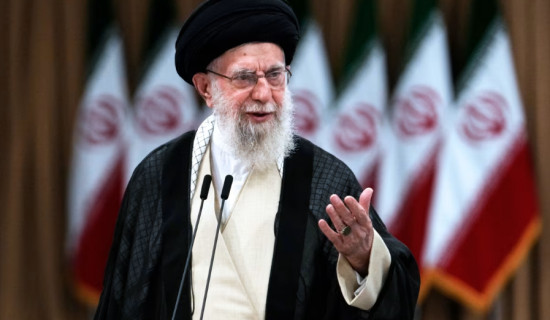- Wednesday, 4 March 2026
From Parochial To Reflective Citizen
Dev Raj Dahal
A shift from ‘parochial,’ ‘apathetic’ to ‘reflective’ and ‘engaged citizens’ has become the order of the day. The central pillars of multiparty democracy -- political parties, cultural industries and educational institutions-- are given primary accountability for educating youths to become good, reflective and engaged citizens in their communities and do essential services in the entire life of the nation. Nepal’s general voting turnout stands around 70 per cent which is a good sign of public participation. But it has not made them fully conscious of their rights and duties, constitution and the operation of political power, political parties, leadership and interest groups and nurture civic competence to shape public policies.
Plural media are, therefore, spreading information and knowledge about democratic principles, institutions and orientation and telling Nepali voters to seek the rationale of their vote in tangible terms. The average invalid voting turnout hovers about three per cent. This mass of populace does not know how to vote. Voters’ education can spur a patch of light in a vast darkness of ignorance and reduce invalid voting. A huge swath of migrant workers abroad also finds it expensive to return home just for voting. They and some others form “absentee voters” as they are dictated by the daily necessity to earn their living, not democratic choice.
Apathetic voters
There are anti-system radical political parties whose revolutionary dream disenfranchises their members from voting. In Nepal, apathetic voters are huge as they do vote but do not know the weight of rational voting informed by critical knowledge of issues, candidates and shaping prudent opinion to influence public policies. As a crowd of innocents, they loiter in the fringe of politics and apply primitive criteria in voting.
The soaring election costs in Nepal favour big parties with robust organisational muscle, business financiers, media control, large membership and muscular means prompted by the distorted notion of politics to get rich, not engage in constructive politics of public services. If voters are given civic education in no way they are prompted by short-term profit, impulse or bandwagon effects spurred by mass show of party’s power, media glittering image of personalised leaders and flood of unrealisable promises of moon and stars. In Nepal, this sort of education has to be ratcheted up by the cultural industries, educational institutions, party schools and even civil society.
Otherwise, they do not care who rises to power and, thus, rejoice all regimes - democratic, authoritarian or totalitarian party control of polity and the state. Nepal’s raucous political evolution has seen party transformation into a catch-all type without renovation of the civic culture of leaders and their self-indulging bent to revise the rules of the game beyond constitutional imperative. The reasons include simulation of managerial form of politics that applies business logic of transactional leadership, not transformational and value-based ones, and the homogenisation of horizontal left-right-centre leadership culture and growth of a new frame of vertical top-down politics indivisible from a division of power.
The fresh hope for democracy deepening lies in the growth of reflective, active and engaging citizens. They require gaining ample civic knowledge, thinking for selves, forming opinions and engaging in wise choices about leadership, organisation, policy, resources and action. This allows voters to control the leaders monopolising political and economic power and enforcing accountability to their promises and mandate. Reflective citizens require constant learning about the changing context and application of civic awareness, skills and temperament to improve participatory political process to safeguard the nation’s civic culture.
They offer scope for critical judgment of leaders’ performance and contribute to political reform, participation and rational leadership growth reflecting rational pursuit of a balance between private interest and common good. Better informed Nepali voters know that they are entitled with constitutional rights, bear civic competence and think that their vote, voice and consent are required for the authority and legitimacy of rule.
They even revoke their consent if they find their leaders withered from the sensitivity to general public and national interests.
It is vital to awaken the large mass of apathetic Nepali citizens from their doctrinaire snooze, blind faith and conformity to every type of leader unresponsive to their own promises and enable them to judge what is right and good from their lived experience and normative and constitutional standards. The irony of Nepali politics is the formation of a series of odd electoral coalitions of unlike-minded political brands in power, opposition and resistance riddled with obdurate logic of left, right and centre contradictions, history of betrayal of each other’s trust and justification of their entrepreneurial action in the name of doctrine of necessity to save the status quo and secure gains made so far.
This has turned many Nepali voters free-floating, not party or ideological curve and hollowed out the utility of multiparty-based democracy where parties become instruments of winning and governing power and shaping public policy outcome. Voters’ ultimate loyalty to leaders and their votes on the basis of primordial concerns, not partisan or ideological attachment of the values when the party was created can flag the basis of party politics and fertilise non-elected interest groups and social movements as leverage for power struggle.
In a collusive nature of electoral strategy, Nepali voters’ dilemma is obvious: they detest voting candidates of other parties as per the direction of top leaders while non-voting weakens the stand of the parties they esteem. In a fissiparous political environment, Nepali voters thus face a paradox: the swelling cost of casting ballots outweighs the likely benefits where even the elected leaders find the execution of mandate difficult as political struggle is pivoted not between economic class or policy alternative but based on the fulfilment of emotional identity recognition of voters. The class approach of party struggle has virtually disappeared in Nepal thus radiating a shift of politics from ideology to sociology.
In a nation of heterogeneous populace, the future electoral politics of Nepal will be marked by an oscillation from one phase of unstable equilibrium to another among the contending electoral coalitions, some even acting as free-riders and switching sides based on opportunity as past electoral behaviour eerily suggests.
Only reflective and engaged citizens have the ability to act in accordance with their conviction and conscience as well as constitutional duty and personal will.
The “categorical imperative” formulated by Immanuel Kant calls for leaders to treat citizens like themselves, not manipulate for instrumental purpose either through indoctrination, false promise, financial incentive, coercion, false media image, or anecdotes expressed in soundbites, not a clear vision of national building.
The instrumental rationality rooted either in bureaucratic politics of status quo, electoral strategy of collusion, de-ideologised polarisation, power of money to influence politics or media culture of ideological conformity, etc. suppress democratic impulse of Nepalis for self-governance. Both leaders and voters require an understanding to use their freedom of choice and behave as per their reciprocal needs.
Nepalis can come together to vote for self-rule if social good serves as an incentive for them granted by the state and constitutional bodies, the government controls the vices of electoral malpractices and civil society offers civic education to politicise them, provide social mobility and agency for collective action. Social inclusion, social justice and social security are precisely designed to rectify the historical injustices by compensatory redistributive measures so that reflective, active and engaged citizens can regularly socialise, articulate demand and mobilise other types of voters for democratic dividends to enrich the quality of democracy.
Each of Nepali leaders, elevated into iconic status by their media and cadres, preach party’s separate manifestoes even in a condition of electoral alignments, gather followers and disagree with each other on ideology, sociology and history of party formation. The supporters split from each other and indulge in quarrel and mutual accusation, endorsing their leaders’ differing versions of ideas about formulating electoral strategy and help them monopolise leadership in each election, despite the temptation of Nepali voters to defeat the incumbent party in power on each occasion.
Hiatus
In Nepal, the old system of politics has not been able to manage the influence of media, money and technology thus revealing a hiatus between what voters want, what they think about politics and how it operates to keep the status quo tether. This hiatus is prompting them to actualise constitutional possibilities for a shared form of democratic public life, not a zero-sum game. This, however, demands a fair equality of opportunity in elections so that political leaders can be smoothly circulated in the infrastructures of democracy and the political system, each pins faith in the values, principles and institutions of constitution and abides by its rules as a highest average utility to them. The parochial, apathetic and alienated voters must be educated about the principles and practices of democracy, opportunities and political choices so that they become stakeholders and find a reason to be committed to participate in electoral politics.
(Former Reader at the Department of Political Science, TU, Dahal writes on political and social issues.)

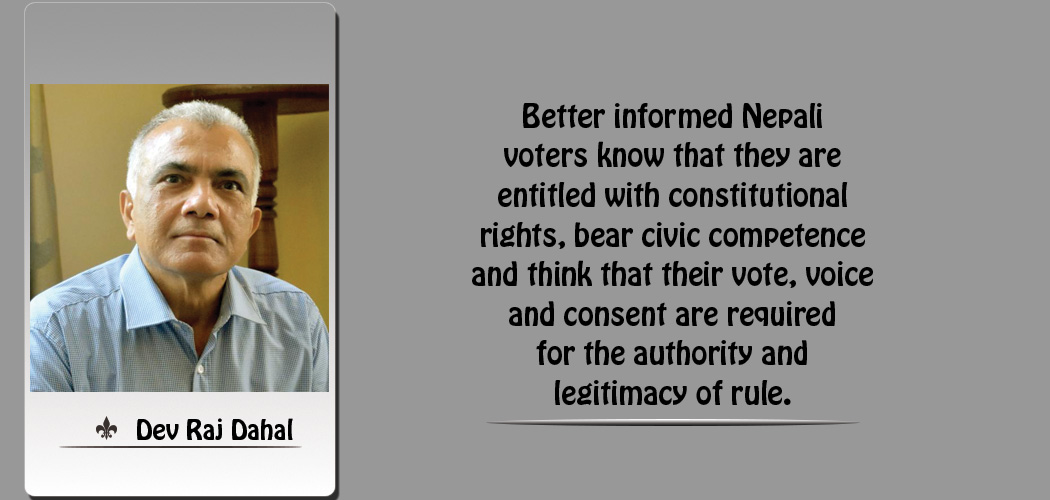








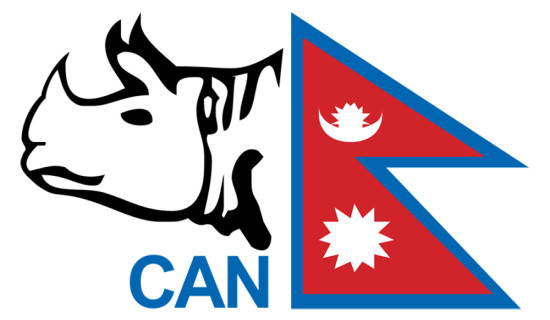
-original-thumb.jpg)

